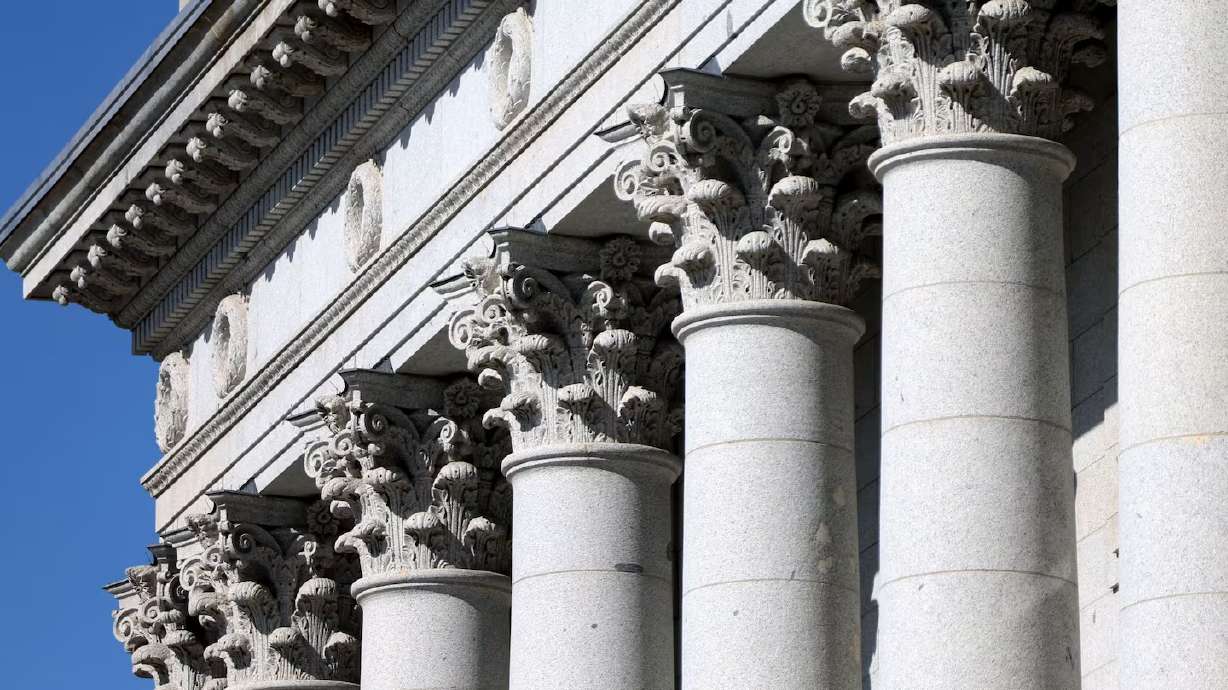Estimated read time: 4-5 minutes
This archived news story is available only for your personal, non-commercial use. Information in the story may be outdated or superseded by additional information. Reading or replaying the story in its archived form does not constitute a republication of the story.
SALT LAKE CITY — The Utah House and Senate voted unanimously on Wednesday to extend the amount of time a person with a dangerous mental health crisis can be committed to a hospital before being released or transferred to long-term treatment.
Passed during the final week of the 2024 legislative session, HB299 will now head to the desk of Gov. Spencer Cox where his action will determine whether the bill becomes law on May 1.
Current code gives hospitals 24 hours before they have to discharge mentally ill people who are brought, often by law enforcement, with suicidal or homicidal intentions. This statutory requirement places Utah among the 10 states with the shortest court-ordered emergency hold times, according to the bill sponsor, Rep. Tyler Clancy, R-Provo.
"You don't need to hold someone for 24 hours if you get them stable in 10," Clancy told the Deseret News. "But right now, at 24 hours, even if they're not where they want to be, you have to let them go, which causes issues for the individuals experiencing that crisis, and then also the community at large if someone is experiencing suicidal or homicidal tendencies and we can't get the help they need because the system is broken. We got to fix that, so that was a huge win."
Expanded commitment and increased civil liberty protections
Clancy said the 72-hour expansion will give hospital mental health professionals the necessary time to stabilize a person or, if needed, to find "an exit destination," which could include long-term mental health care at the state hospital.
But the involuntary commitment portion of the bill would be incomplete, Clancy said, without what he calls "civil liberty protections" to codify hospital best practices and make sure that committed patients, many of whom were previously experiencing homelessness, are released with better resources than they had before.
The bill would require hospitals to notify law enforcement of the patient's release; provide a case report explaining why a patient was committed and what medications were changed or discontinued during their stay; ensure committed people have the prescription drugs they need upon release; and inform them of other mental health resources where they live.
"We didn't want to increase the amount of time we can hold or expand commitment without increasing those protections, too," Clancy said.
Broad support for the bill comes down to the number of lawmakers, and Utahns, who have been directly impacted by a mental health crisis, Clancy said.
"It was just a matter of getting the will and getting people at the table to get it done," Clancy said.
Implementation of the legislation, if signed into law, is estimated to cost taxpayers $67,800 in ongoing funds and $58,000 in one-time appropriations, with some increased revenue expected from judicial fees and additional expenditures needed to fund additional court expenses, develop training materials for the new discharge requirements and contract a study into expanding civil commitment capacity in the state. However, funding numbers for the next fiscal year are still not final.
State hospital provisions removed for lack of funding
This session, legislators have had to work within tight budget constraints after projections revealed lower revenue growth compared to previous years.
The original draft of Clancy's bill proposed a dramatic overhaul of state mental hospital capacity in addition to amending the involuntary commitment process. It would have required state agencies to sell the Utah State Hospital property in Provo and use the proceeds to develop a multiple-facility model to spread state hospital resources across Utah.
"We've pared it back significantly for financial concerns," Clancy said during the bill's Senate hearing presentation on Tuesday.
Working with the Department of Health and Human Services, Clancy found that state capacity would need to increase by 4,700 to include all those experiencing severe and persistent mental illness that prevent them from meeting their "basic human needs," he said.
One provision of the final legislative text would task the Utah Substance Use and Mental Health Advisory Council with studying increased mental health treatment capacity in the state.
"We're going to need to expand capacity. I can't accomplish it this year," Clancy said.
Clancy, a Provo police officer, who at 27 is Utah's youngest lawmaker, has led out on the issues of mental health, sexual assault and homelessness during the legislative session ending Friday at midnight.
This week, his bill, HB298, which would revamp how the state defines and measures homelessness, and the programs meant to address it, passed both chambers, also with unanimous bipartisan support.
The bill would change the membership of the executive committee of the Utah Homelessness Council; clarify the state's goal of reaching a "functional zero" level of homelessness, where the number of individuals exiting homelessness exceeds the number entering it; and outline additional data that must be gathered by the Office of Homeless Services.










